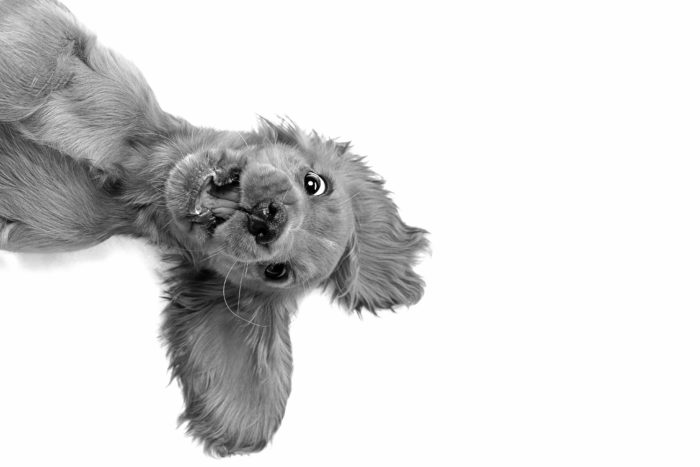Traits to look for in a Puppy Trainer
-
- A good trainer has a solid understanding of socialization and there is a strong component of socializing the dog during the class and as homework.
- A trainer should be willing to take the time necessary to explain things you have difficulty understanding.
- If a trainer has done their job, you will have a series of solid handling skills once you have finished classes. You will be able to solve real life dog/people problems as they arise.
A good dog trainer can adapt easily to the different ways people learn.
- A good dog trainer can foresee a potential problem and help curb the behavior before it becomes critical.
- A good trainer will look for a variety of solutions to any problem and will set your dog up to succeed in areas where you might be struggling.
- A good dog trainer can adapt easily to the different ways people learn. Good trainers are good listeners and can adjust to what you need!
- A good dog trainer is available in between classes to answer questions.
- A good trainer will provide thorough handouts so that you do not have to make notes during the class.
- A good trainer will provide you with feedback on your progress.
- Before you enroll in a class, find out if the trainer will have enough time for you. Although dogs have a basic commonality when it comes to training, no two dogs are alike. They each have their own personalities, temperaments, and needs. The trainer should be available for some one-on-one work. Perhaps there is a primary instructor and one or two back up trainers who help during class. A good student-to-trainer ratio is 5 to 1.
- A good trainer can help you set goals and objectives.
- They should also be observant; able to point out any obstacles or opportunities for you and your pup.
- A good dog trainer will spend some time talking with you prior to signing up for classes.
- A good trainer will allow you to audit a class before signing up.
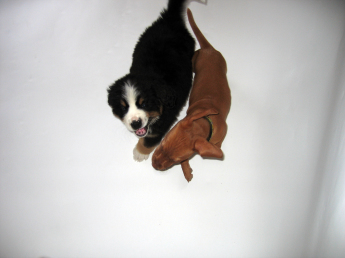
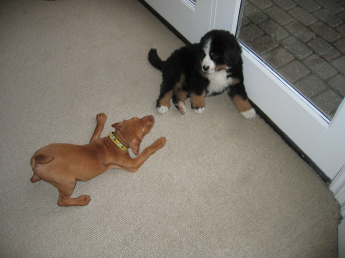
- The floors should be cleaned with disinfectant before and after all classes.
- The organization should require that all puppies have begun their vaccinations, be on a program to receive the rest, and have a clean bill of heath.
- Only puppies under the age of 18 weeks should be admitted to class.
- There should be one trainer for every 5 puppies.
- The class should be run by someone who understands dog behavior and can spot and run interference when problems arise.
Be wary of a trainer who wants to train your dog separate from you. As great as this sounds (they do all the work!), if you are unable to handle your dog, no amount of training that someone else does is going to help. A good trainer must train you!
Generally, folks have one basic objective: to have a harmonious relationship with their dogs. Good doggy behavior and obedience are primary goals.
For some, preparing their dog to compete in different field events such as agility, flyball, den trials, tracking, lure coursing, herding, and water rescue is the long-term goal. Although this is not for everyone, it can be a very enjoyable way to spend time with your dog. The dogs love it; it is what they were meant to do. It exercises all their innate talents; it makes them think! The dogs are happier and people love it too!
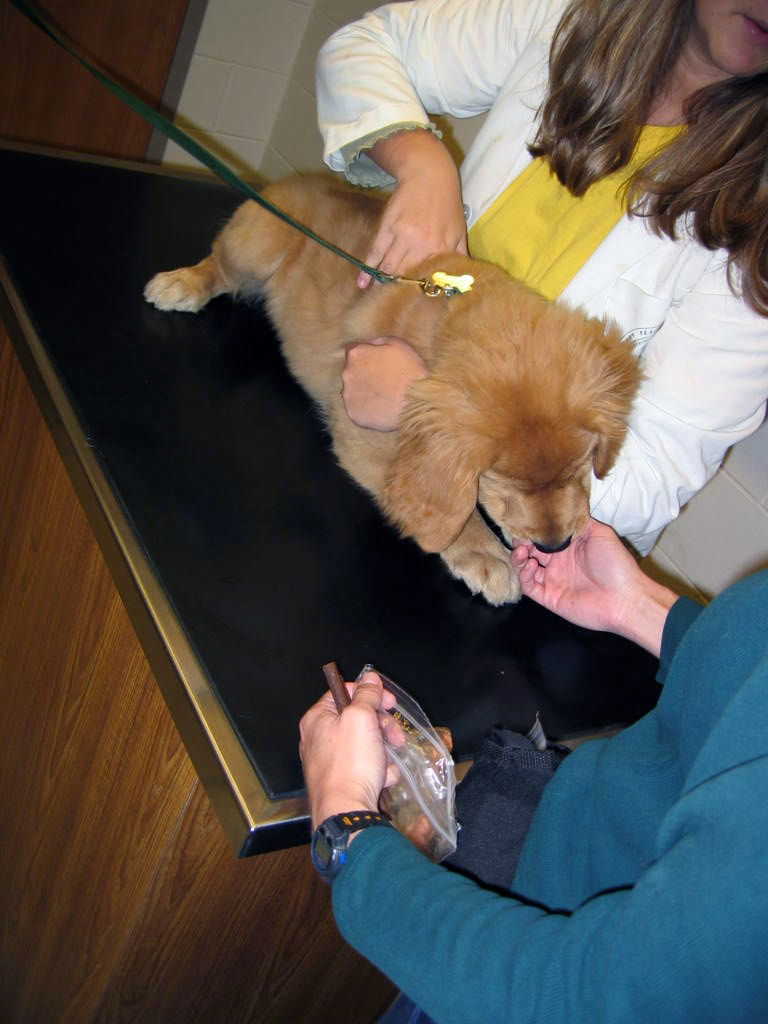
A good Puppy Class includes handling exercises.
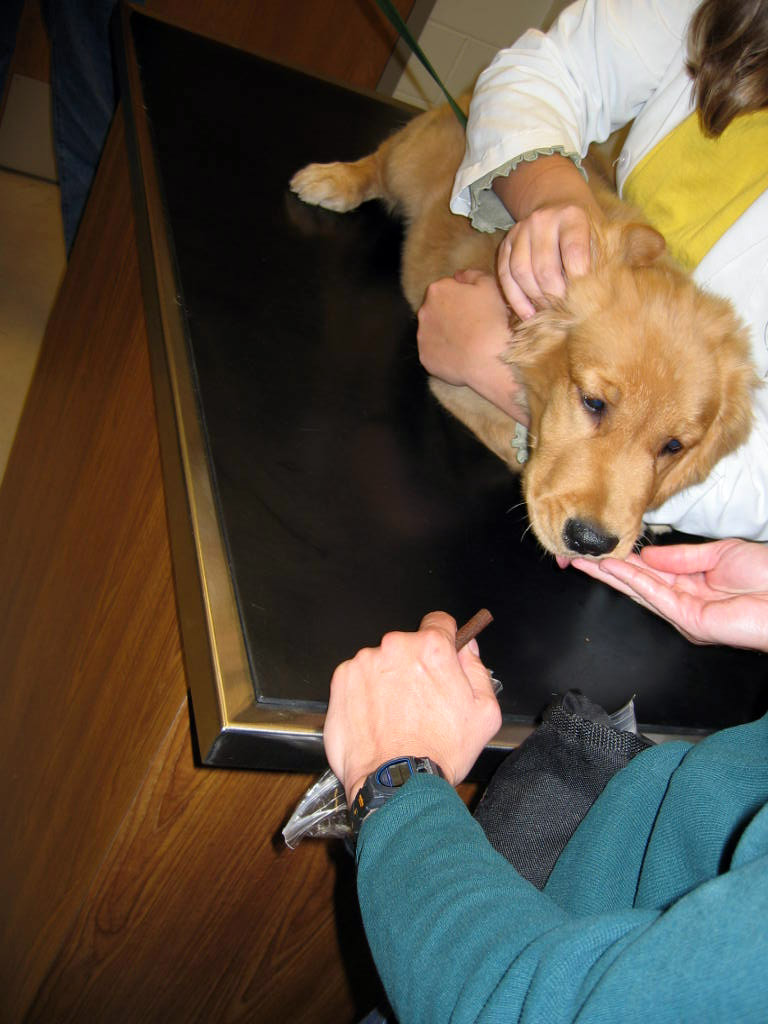
Clicker training is another fun, effective and dog-friendly method of training and can be started very early on with puppies. (see the list of web resources at the end of this section). Marine mammal trainers have been using clickers for years. A small plastic box gives off a distinct clicking noise when pressed. It is a powerful way to train, eliminating the less precise timing of our verbal praise.
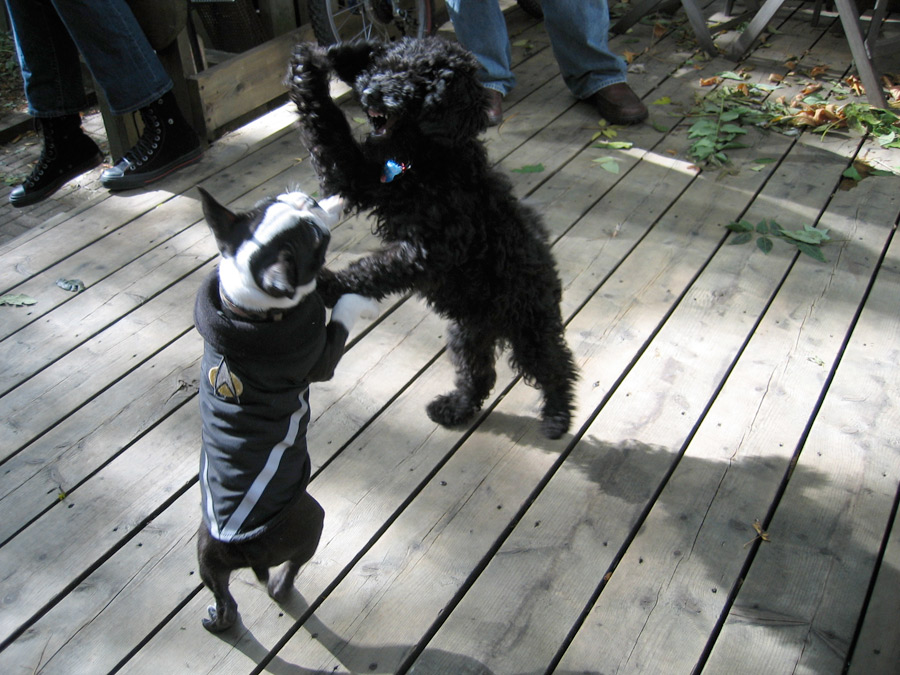
A good Puppy Class includes opportunities to socialize.
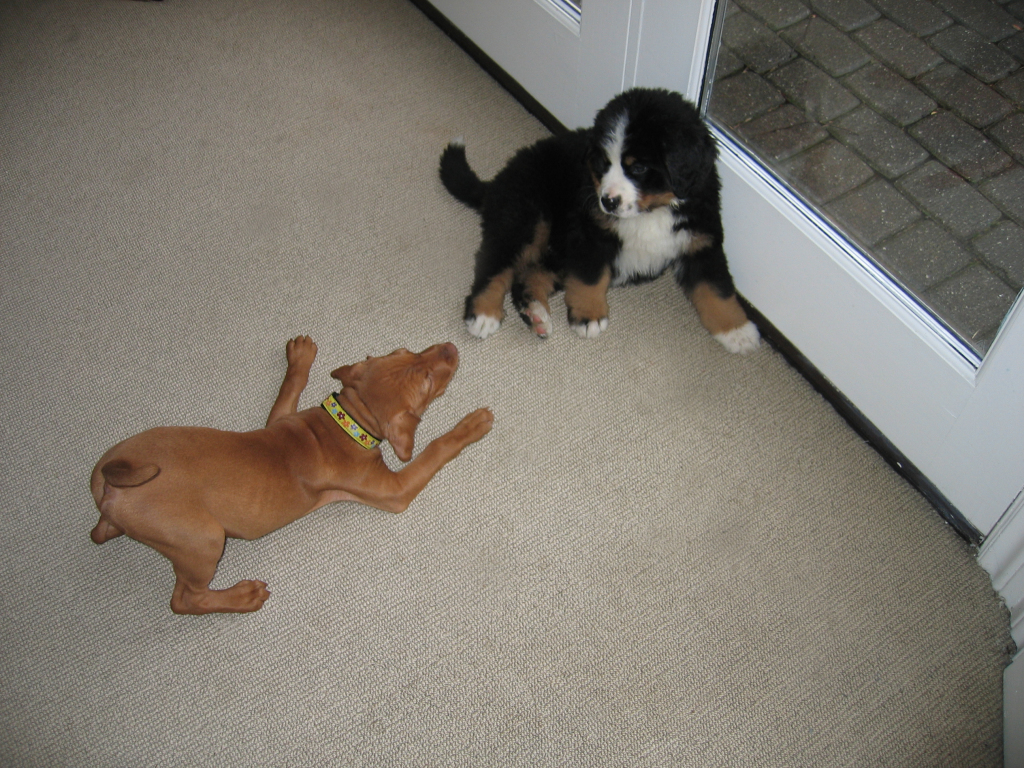
- Ask a lot of questions!
- Ensure that the trainer you select is not going to undermine all the hard work you are already doing with your pup.
- Never give free rein! Your dog is your responsibility. It’s up to you to decide if the person you are enlisting has the best interests of you and your dog in mind. If your gut tells you that something is not quite right, find another trainer.

